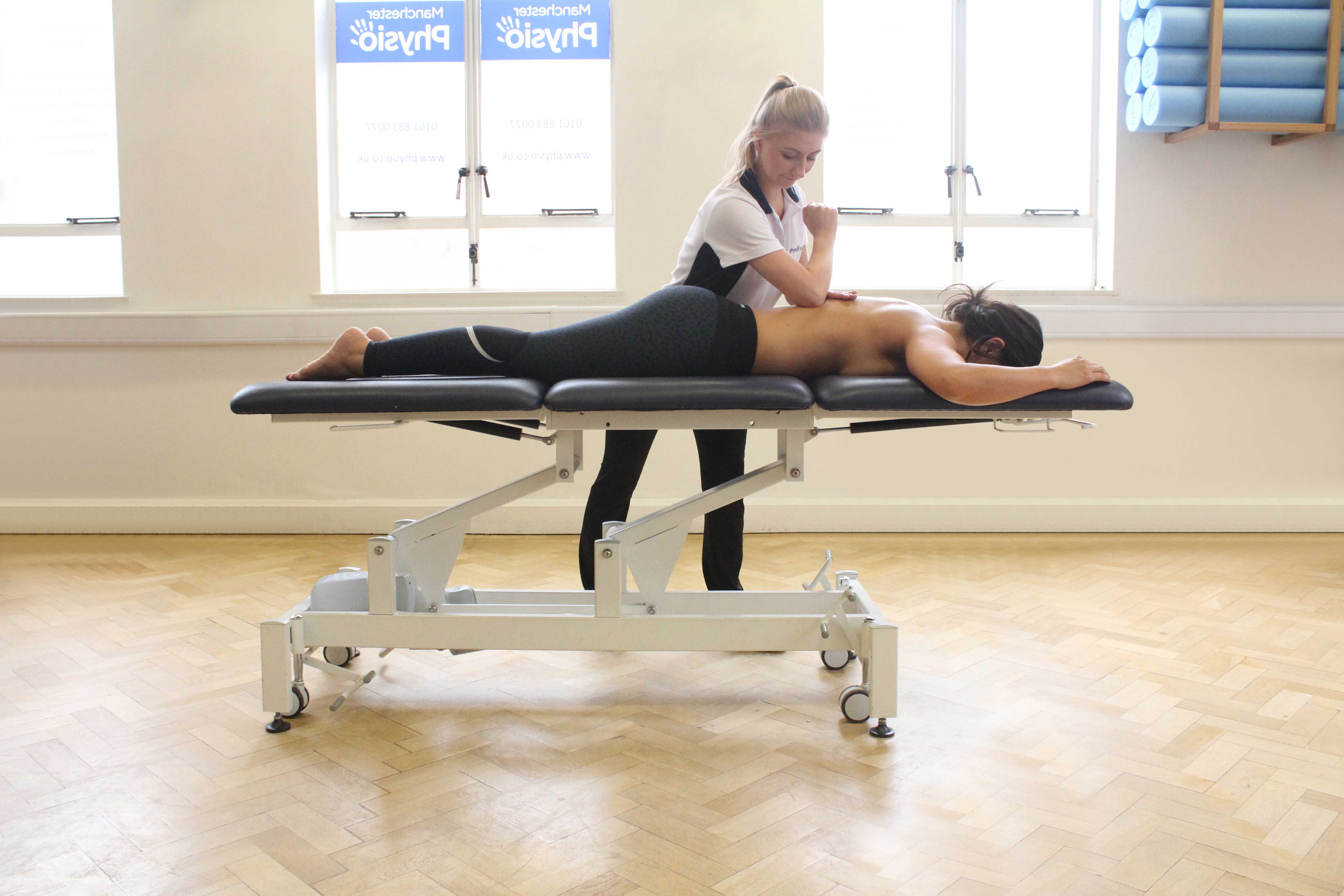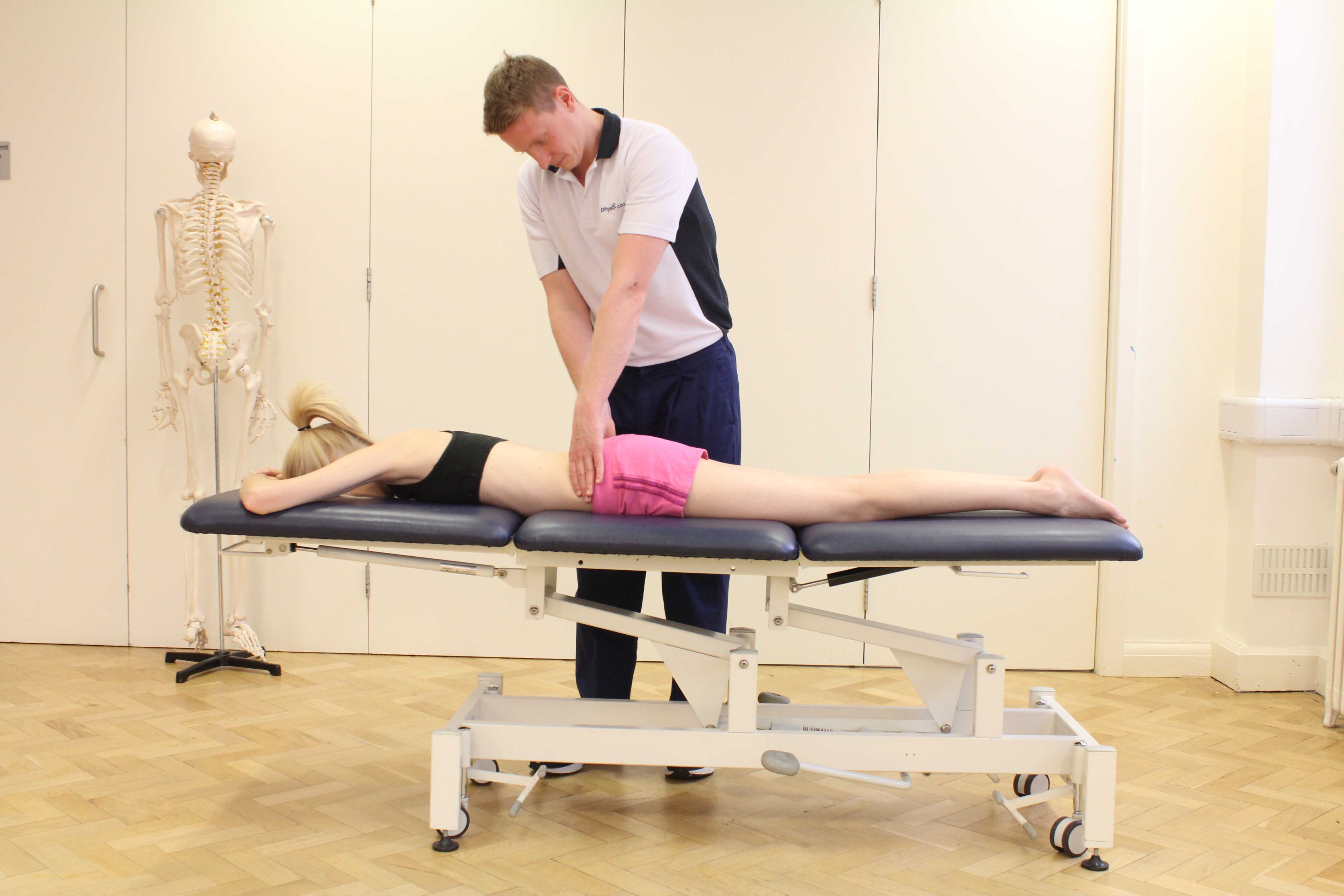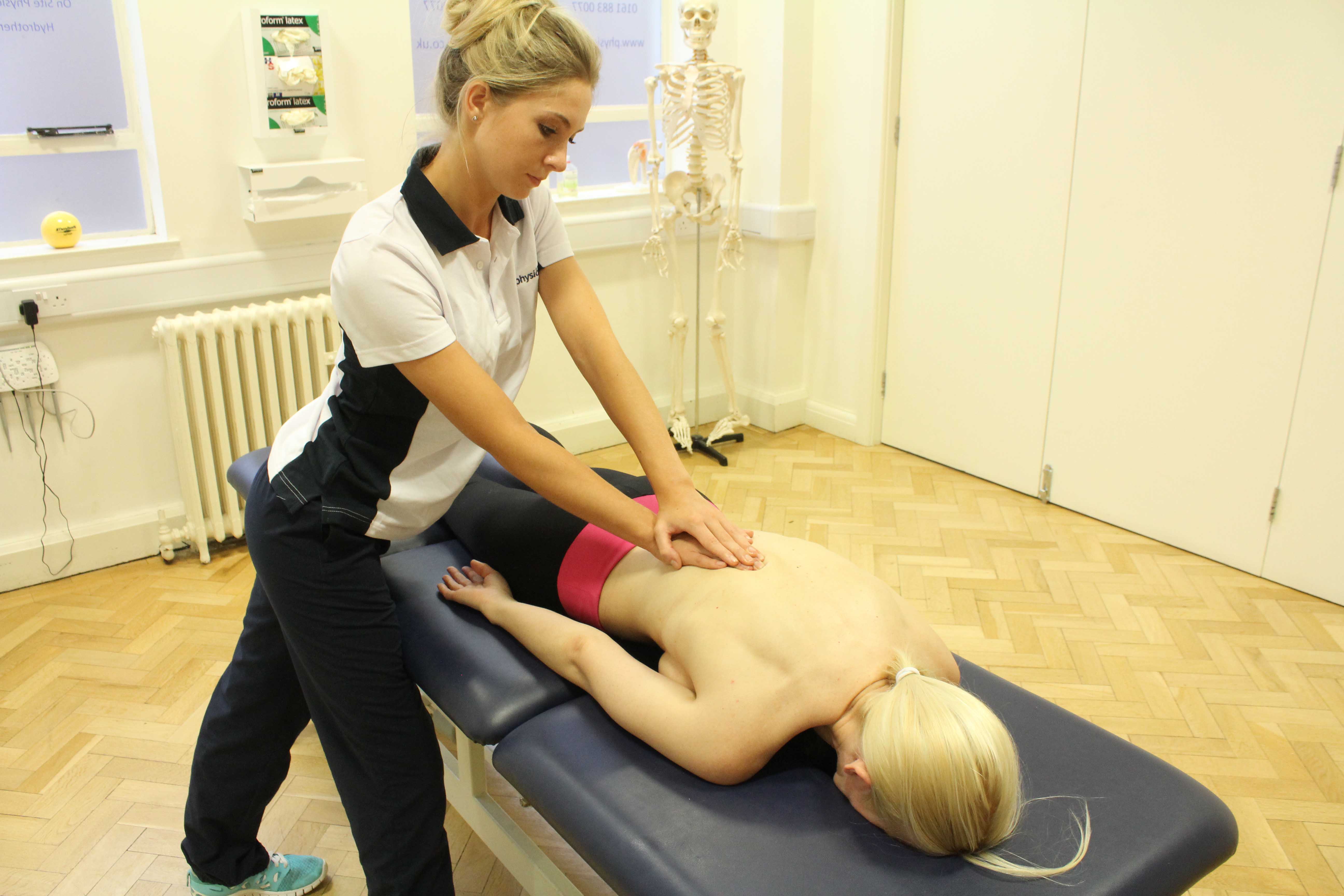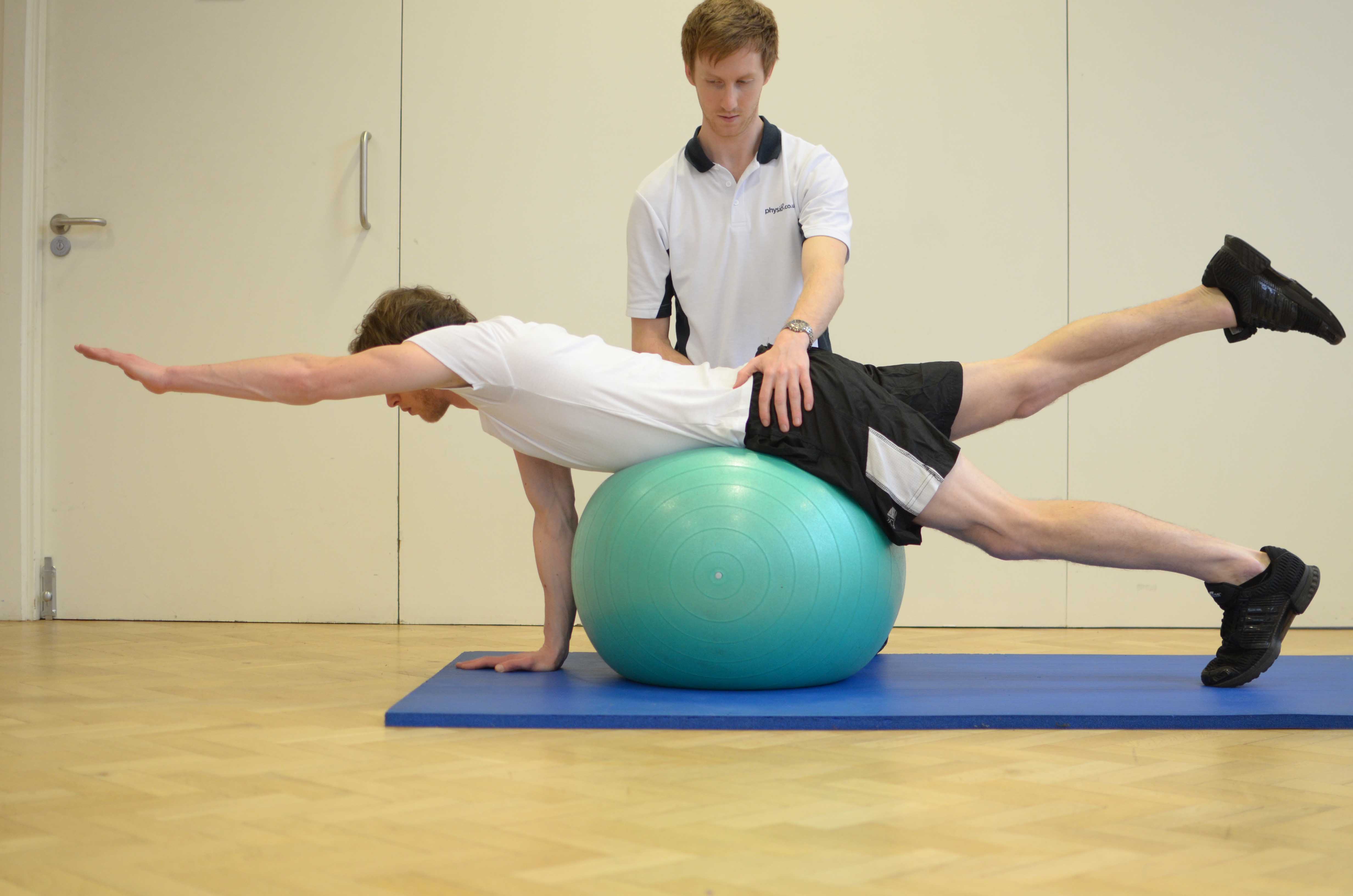What is muscular lower back pain?
Muscular lower back pain is any pain in the lumbar spine caused by damage to the muscles in this area. Physiotherapy is a successful treatment for muscular lower back pain.
 Above: Deep tissue massage of the muscles in the lower back by specialist therapist
Above: Deep tissue massage of the muscles in the lower back by specialist therapistHow does muscular lower back pain happen?
Muscular lower back pain is commonly caused by poor sitting postures, repetitive bending and twisting movements or wear and tear of the joints in the lumbar spine. All of these place extra strain on the muscles supporting the lumbar spine which can then become damaged and weakened. Pregnancy, osteoporosis and being overweight also predispose the body to muscular lower back pain. Muscular lower back pain often builds up over time and you may not notice any symptoms until the condition becomes more severe. Therefore it is important to maintain a good posture and remain active to try and prevent symptoms of muscular lower back pain.
What are the symptoms of muscular lower back pain?
Symptoms of muscular lower back pain include pain and aching of muscles around the lumbar spine. Muscle spasm and tenderness are also common symptoms which makes it more difficult and painful to move. In more severe cases, nearby nerves may be irritated or pinched causing various neurological symptoms including numbness, pins and needles and weakness.Other symptoms include:
 Above: Trigger point massage of the lower back muscles by specialist MSK therapist
Above: Trigger point massage of the lower back muscles by specialist MSK therapistWhat should I do if I have muscular lower back pain?
You should seek professional help as soon as you start to notice symptoms of lower back pain. Your GP may prescribe you with painkillers or anti-inflammatory drugs to help reduce your pain or any inflammation in the area. Muscle relaxants may also be prescribed to reduce muscle spasm. Physiotherapy should begin as soon as possible to optimise your recovery and prevent any long term complications.
Physiotherapy treatment for muscular lower back pain.
Your physiotherapy programme will include stretching and strengthening exercises of the affected muscles to try and keep the back strong and support the lumbar spine. Cardiovascular activities such as swimming, hydrotherapy and cycling are important to remain active and keep the lumbar spine mobile. Cold and hot therapy are useful to relieve pain and can be used before and after your exercise programme. Further treatment includes:
 Above: Soft tissue massage of the lower back muscles and connective tissue by specialist therapist
Above: Soft tissue massage of the lower back muscles and connective tissue by specialist therapistWhat shouldn’t I do if I have muscular lower back pain?
Do not ignore symptoms of muscular lower back pain as this will make the condition worse and more difficult to manage in the future. You should avoid taking too many painkillers to completely mask the pain as this may allow you to carry out activities which put too much strain on the lower back without realising it. Bed rest is the worst treatment for muscular lower back pain as this will increase the stiffness and weaken the muscles around the lumbar spine.
Could there be any long-term effects from muscular lower back pain?
Muscular lower back pain is usually cleared up in 6-8 weeks with physiotherapy and prescribed medication. However, if there is nerve involvement recovery may be considerably longer. Physiotherapy is also an effective way of managing neurological symptoms.
 Above: Progressive strengthening exercises for the lower back supervised by specialist MSK physiotherapist
Above: Progressive strengthening exercises for the lower back supervised by specialist MSK physiotherapistTo arrange a physiotherapy assessment call Physio.co.uk on 0330 088 7800 or book online.

 0330 088 7800
0330 088 7800


































